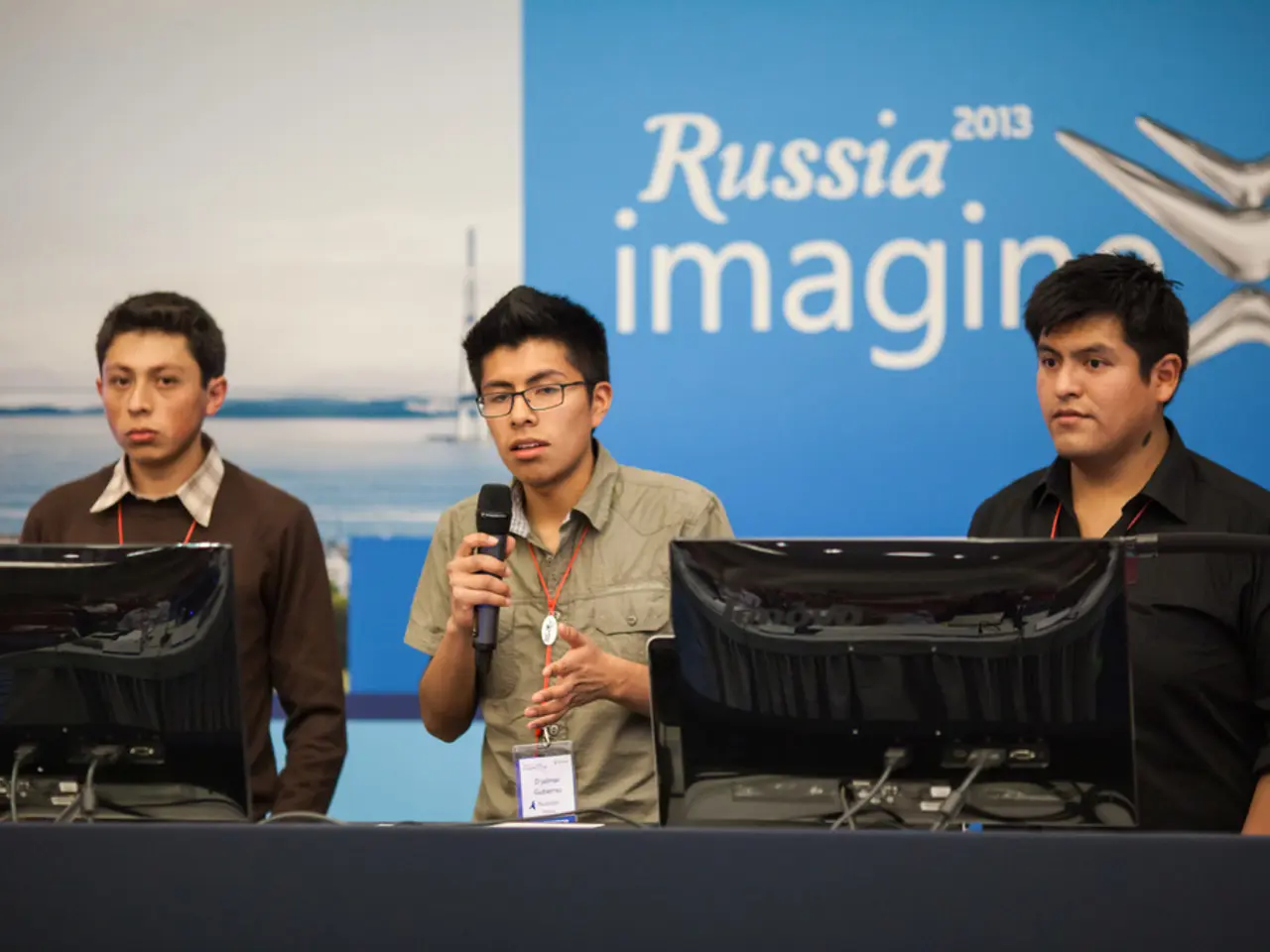Inquiries Made by China Regarding Security Measures in Nvidia's AI Chips
China's internet regulator, the Cyberspace Administration of China (CAC), has raised security concerns about Nvidia's H20 AI chips, specifically alleging a serious security vulnerability related to potential location tracking and remote shutdown features [1][2]. Nvidia has strongly denied these claims, stating that their chips do not contain any "backdoors" that would allow remote access or control.
The CAC has summoned Nvidia representatives for a meeting to question them on these alleged risks and has requested relevant technical documents [1]. The dispute is part of broader unease over U.S. proposals to require American chipmakers to include tracking features in chips sold overseas, though no such law has yet been passed [1].
The ongoing tension between the US and China over advanced AI semiconductor technologies is evident in this case. Chips like Nvidia's H20 are critical for AI development and deployment, and their potential misuse could pose significant risks [1]. This episode highlights potential regulatory and trade barriers in China targeting U.S. chipmakers amid security concerns, even though Nvidia has recently benefited from the partial lifting of a ban on exporting its H20 chips to China after White House discussions [1].
The escalating tensions and mutual distrust around advanced AI semiconductor technologies could impact the supply chains and market access for both countries [1][2]. This episode also reflects broader geopolitical competition, where China scrutinizes U.S. technology exports under fears of espionage or control, while the U.S. advances legislation to track chip usage abroad, exacerbating the conflict [1][2].
In summary, the Nvidia case illustrates ongoing security-related friction in US-China tech relations, where both sides are wary of the strategic risks posed by cutting-edge AI chips. The H20 chips, specifically developed for the Chinese market, are a bone of contention in the geopolitical race between the US and China. Washington is trying to limit China's access to powerful AI hardware, while Beijing aims for greater independence through its own chip development.
[1] The Verge. (2025, May 1). Nvidia faces security concerns over H20 AI chips in China. Retrieved from https://www.theverge.com/2025/5/1/23085433/nvidia-h20-ai-chip-china-security-concerns-cac
[2] Reuters. (2025, May 1). Nvidia denies security concerns over H20 AI chips in China. Retrieved from https://www.reuters.com/technology/nvidia-denies-security-concerns-over-h20-ai-chips-china-2025-05-01/
- The meeting with Nvidia representatives by China's internet regulator, the Cyberspace Administration of China (CAC), demonstrates the importance of policy-and-legislation and politics in addressing concerns about artificial-intelligence technology, specifically in managing the security risks posed by advanced AI semiconductor technologies.
- The ongoing dispute over Nvidia's H20 AI chips serves to underscore the role of general-news media in reporting on the deepening connections between technology and politics, as well as the impact of such controversies on the relationship between the US and China.
- In the context of increasing scrutiny of U.S. technology exports and fears of espionage or control, this episode showcases the pivotal role of service providers like Nvidia in bridging the divide between technological advancement and policy-and-legislation, especially as the US and China continue to vie for dominance in the field of AI and semiconductors.




